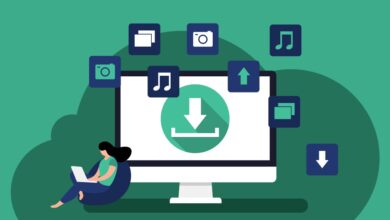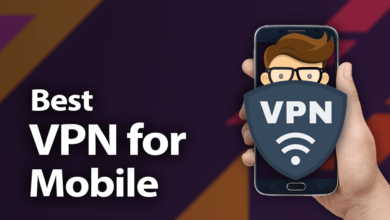How Vulnerable Do Your Everyday Tech Habits Make You?

Despite its widespread adoption, the Internet is still a place full of dark corners and lurking danger – with many of the threats existing in plain sight. You might feel like sticking to a few high-profile websites and avoiding the deeper corners of the web will keep you safe in the refined evolution of the Information Age, but even the most common and innocuous online habits like using a reliable search engine or browsing social media can present a form of risk to your personal information. Here’s how these two basic online functions can put you at risk and a way for you to mitigate the danger.
Using a Search Engine
The type of information that you consume from the Internet can be used to create a strikingly clear profile of you based on a comparison of the metadata to other consumers’ metadata. Even something that might not seem important can provide key details of your life to potential scammers and hackers. For example, say you used a search engine to look up your favorite band, the lyrics to a new song, their tour dates, and visited a ticket booking site. If the band’s website had a tracking cookie, a somewhat temporary piece of data used by browsers and servers, the rest of your browsing history that day may end up for sale. A malicious actor who has access to the data has several pieces of information that can reveal where you are and where you might intend to be on a certain day.
It may seem like looking up medical information online should be relatively safe due to HIPAA laws, but the collection of data from different sites can be used as a way to profile you or someone in your home without necessarily violating the law – if the website intends to follow it at all. Websites can mimic the information on a more reputable website to generate traffic. As an example, you might look up a specific medication, the symptoms of a disease, and a page for a local business. Even assuming all the websites are legitimate and scrub your name, number, and other restricted information from the data dump, all three put together can gain insight into your physical location and medical history.
Scrolling Social Media
Aside from the content itself, browsing social media can feel like a relatively safe endeavor. Sure, there might be a few scammers here and there to dodge, but you might not suspect danger if you avoid the obvious pitfalls. These companies do collect and sell your data, and even their “anonymized” information can be used to paint a very clear portrait of users. Most social media sites will require you to login to participate, and they will know all of the IP addresses that have connected to your account. When you browse other sites with the same IP address, the data can be amalgamated to link the various pieces to you. This tracking can extend across different browsers and different sessions if your settings are not properly configured.
If you’re curious about the capabilities of the tracking tech and how badly companies want all of your data, Facebook users can look at the Off-Facebook Activity section in their settings to get a glimpse of the scope.
How Can You Protect Yourself While Using Tech?
With tech threats evolving every day, no security method is 100% safe without constant diligence. That said, adding a baseline of protection can inoculate you from known risks. One step you can take is to sign up for Trend Micro’s Virtual Private Network (VPN) Proxy One Pro service. The high speed VPN service masks your IP address while you browse, providing you with a layer of protection against the dangers of Big Data’s control of consumer information. Unlike lower quality services, this high speed VPN keeps you browsing at full speed while still enjoying the privacy it provides.
That said, a VPN alone will not make you anonymous online, especially if you do anything that would compromise that anonymity. If you go through all of the effort to hide your address but then log into your Facebook account and start browsing, Facebook will see the IP of the VPN and potentially be able to track your other browsing data through cookies. One thing you can do is connect to your social media through a normal connection while doing any additional browsing through your VPN. This disconnect makes it harder, but not impossible, for the information to be linked.
There are plenty more threats and ways to protect yourself from them than can be covered here. If you want to keep yourself and your information safe, contact Trend Micro or visit our website to learn more about threats like IP tracking or to sign up for protective services.



